What are the best books about foster care?
If you are exploring how to become a foster parent, you have many questions. Sometimes talking with us is all a prospective foster parent needs. For others, a good book might do the trick. So, what are the best books to read about foster parenting? We have compiled a list of some of our favorites and some of the most recommended by our CCR foster parents in Wisconsin.
Top books every foster parent needs to read.
The recommended books are in no particular order and are just a small selection of great books available about fostering. Each book listed addresses different struggles, strategies, practices, reflections, personal experiences, and approaches. We hope that you will take the time to explore all of the books about foster care and foster parenting. Each title links Amazon for ease of purchasing the book if you wish.
The Whole-Brain Child: 12 Revolutionary Strategies to Nurture Your Child’s Developing Mind: by Daniel J. Siegel and Tina Payne Bryson
A revolutionary approach to child rearing with twelve key strategies that foster healthy brain development, leading to calmer, happier children. The authors explain how a child’s brain is wired and how it matures. The “upstairs brain,” which makes decisions and balances emotions, is under construction until the mid-twenties. The right brain and emotions tend to rule over the left brain's logic, especially with younger kids. By applying these discoveries to every kind of parenting, you can turn any outburst, argument, or fear into a chance to integrate your child’s brain and foster vital growth.
Complete with age-appropriate strategies for dealing with day-to-day struggles and illustrations that will help you explain these concepts to a child, The Whole-Brain Child teaches how to cultivate healthy emotional and intellectual development to lead balanced and connected lives. Kids will learn to build stronger relationships and succeed in school.

If you want to understand the emotion-filled actions your child is displaying, then this book may be for you.
Welcome to the Roller Coaster: by D.D. Foster
Written by fourteen foster moms who have fostered a combined total of over one hundred thirty-five children. They have come together to share their personal stories to provide a glimpse into the real world of foster care and the kids in foster care they cared for. Though many of their journeys have been difficult, these ladies will inspire you with their stories of love, loss, and healing.
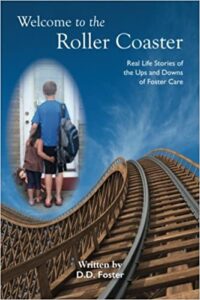
The Body Keeps the Score: Brain, Mind, and Body in the Healing of Trauma: by Bessel van der Kolk, M.D.
Trauma is a fact of life. Veterans deal with the painful aftermath of combat; one in five Americans has been sexually assaulted; one in four had an alcoholic parent; one in three couples have engaged in physical violence. Dr. van der Kolk, one of the world’s foremost experts on trauma, has spent three decades working with survivors.
In The Body Keeps the Score, he uses scientific advances to show how trauma reshapes both body and brain. He explores innovative treatments—from neurofeedback and meditation to sports, drama, and yoga—that offer new paths to recovery by activating the brain’s natural neuroplasticity. The Body Keeps the Score exposes the tremendous power of our relationships to hurt and heal and offers new hope for reclaiming lives.
* Trauma informed care is a huge part of our foster parent training. Foster parents must have the tools and training to parent kids from difficult places with trauma histories.

Reframing Foster Care: by Jason Johnson
If you are looking for a religious reframing of the conversation, this is an excellent book to explore. Jason does a beautiful job of presenting thoughtfully-written reflections on foster parenting. His book reminds many of us why we took on the challenge to become a foster parents in the first place.
Foster parents face unique circumstances and experience many emotions that few can relate to. Their journey is one of equal parts beauty and brokenness, joy and heartache, excitement and exhaustion. There is no textbook on being a foster parent, no formula, or no simple three-step guide. But there is hope—in God’s capacity to bring great beauty out of tragic brokenness. This is the gospel—the lens through which you can filter your foster parenting journey and ultimately find the strength, motivation, and courage you need to be sustained along the way.
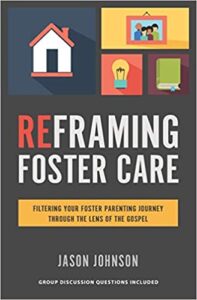
ReFraming Foster Care is a collection of reflections on the foster parenting journey designed to help you do just that—find hope—and to remind you that your work is worth it and you are not alone.
Another Place at the Table: by Kathy Harrison
The startling and ultimately uplifting narrative of one woman's thirteen-year experience as a foster parent. Another Place at the Table is the story of life at our social services' front lines, centered on three children who nearly destroy it when they come together in Harrison's home. It is the frank first-person story of a woman whose compassionate best intentions for a child are sometimes all that stand between violence and redemption.
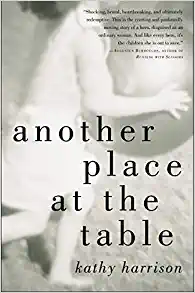
Orphan Train: by Christina Baker Kline
The United States has not always had a foster care system. Between 1854 and 1929, so-called orphan trains regularly ran from the cities of the East Coast to the farmlands of the Midwest, carrying thousands of abandoned children whose fates would be determined by pure luck. Would a kind and loving family adopt them, or would they face a childhood and adolescence of hard labor and servitude? As a young Irish immigrant, Vivian Daly was one such child, sent by rail from New York City to an uncertain future a world away. Returning east later in life, Vivian leads a quiet, peaceful existence on the coast of Maine; the memories of her upbringing rendered a hazy blur. But in her attic, hidden in trunks, are vestiges of a turbulent past.

Seventeen-year-old Molly Ayer knows that a community service position helping an older woman clean out her home is the only thing keeping her out of the juvenile hall. But as Molly helps Vivian sort through her keepsakes and possessions, she discovers that she and Vivian aren't as different as they appear. A Penobscot Indian who has spent her youth in and out of foster homes, Molly is also an outsider being raised by strangers, and she, too, has unanswered questions about the past.
More to Me tells is not just a reflection of one story, but many. For as long as Bri can remember, it’s been the same thing: taking care of her siblings throughout her mom’s many hangovers, breakups, and abusive habits. After fourteen years of this family dysfunction, she and her younger three siblings end up in foster care, where she battles with depression and loneliness. These very things caused her mother to slip deeply into her alcohol addictions years ago. Bri fights with every ounce of strength she can muster, but it doesn’t matter – her family still falls apart, and she is left broken and alone. As she drifts through the unfairness of a shattered heart, Bri meets one unexpected last chance at hope. Cautious and skeptical, she slowly realizes the truth about her past.
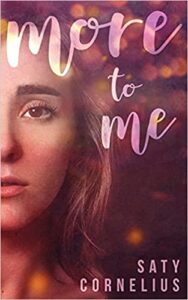
The subject can be heavy, but it discusses topics relevant to anyone, not just families in foster care. The book’s overarching themes include trust, depression, and heartbreak. But underlying all of it is hope.
By Josh Shipp
In 2015, Harvard researchers found that every child who does well in the face of adversity has had at least one stable and committed relationship with a supportive adult. But Josh Shipp didn’t need Harvard to know that. Once an at-risk foster kid, he was headed straight for trouble until he met the man who changed his life: Rodney, the foster parent who refused to quit on Shipp and got him to believe in himself.
Now, in The Grown-Up’s Guide to Teenage Humans, Shipp shows all of us how to be that caring adult in a teenager’s life. Stressing the need for compassion, trust, and encouragement, he breaks down the phases of a teenage human from sixth to twelfth grade, examining teenagers' changes, goals, and mentality at each stage.
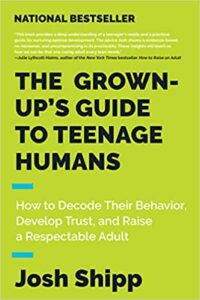
Shipp offers revelatory stories that take us inside the teen brain and shares wisdom from top professionals and the most expert grown-ups.
We hope that this list will give you some good reading options as you explore foster care or continue on your fostering journey.
As always, please get in touch with us with any questions you may have about becoming a foster parent.







